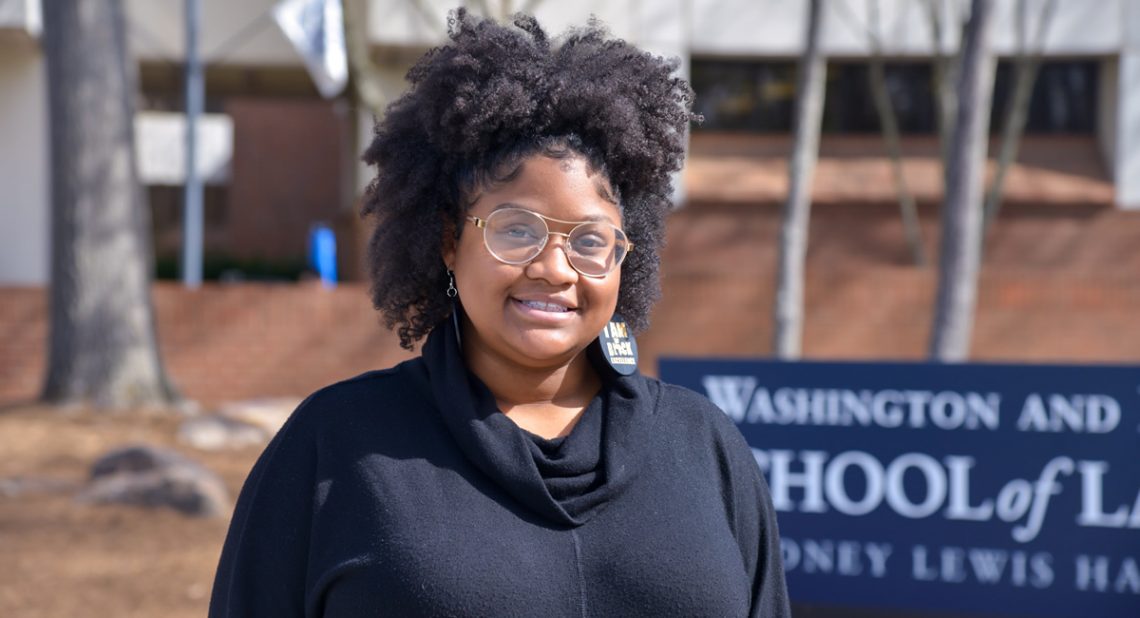
Working in the Criminal Justice Clinic Kasia Wiggins '20L, a future public defender, has advocated for clients during two bond hearings and two trials in the CJC.
Kasia Wiggins ’20L is a student caseworker in the Criminal Justice Clinic, a year-long commitment for 3Ls interested in criminal defense.
“That was one of the things that hooked me on W&L—the third-year practical experience,” she said. “Knowing that I wanted to go into criminal defense and specifically indigent criminal defense, after I saw the CJC and the work that they did in the clinic, I was sold.”
Her real-world experience in the clinic has greatly added to her legal education.
“Learning how to litigate is different from actually doing it,” she said. “In the clinic, so far I’ve had two bond hearings and two trials, and nothing in the classroom can prepare you for getting up in court and actually doing it.”
Wiggins said that the Director of the Criminal Justice Clinic, Prof. J.D. King, provides guidance, but the student caseworkers, along with their investigative partners, mostly navigate cases on their own.
“We decide what witnesses to interview, when to talk to the client, we decide how to investigate what defenses we want to use…all of the decisions we make are on us.”
There are eight students in the CJC, partnered in twos. Each student acts as litigator for their own case and as investigator for the case assigned to their partner. An investigative partner accompanies the lead student caseworker to their interviews with clients and witnesses, taking notes and offering perspective.
“There may be instances where you may need to call your investigative partner during a trial, in case a witness may change their story, and they’re saying something different than the initial interview,” Wiggins explained.
“You want to be their social worker, you want to be their therapist, you want to be everything that you know that they need.”
In the clinic, student caseworkers handle misdemeanors, but that doesn’t mean that their cases are simpler than cases involving higher crimes, Wiggins said.
“When you start investigating, you realize that these cases are just as complex and complicated as serious felonies, and they take a lot of time and work to get to the result that you think is best for your client.”
For Wiggins, the hardest part of working in criminal defense is not getting the desired outcome for people that have been dealt a rough hand in life.
“What you can do for them is limited to the legal troubles they’re going through,” Wiggins said. “You learn about their personal lives…and you want to help them with everything—you want to be their social worker, you want to be their therapist, you want to be everything that you know that they need, but you’re very limited with what you can do, and so for me, that’s the hardest part, because I want to be able to help everyone.”
After graduating, Wiggins hopes to return to her hometown, near the Tidewater area of Virginia, to work as a public defender.
